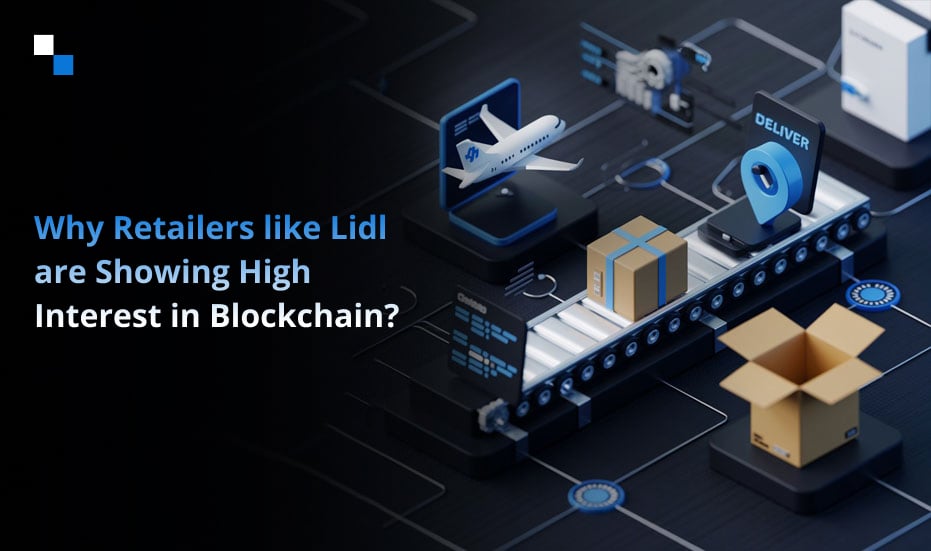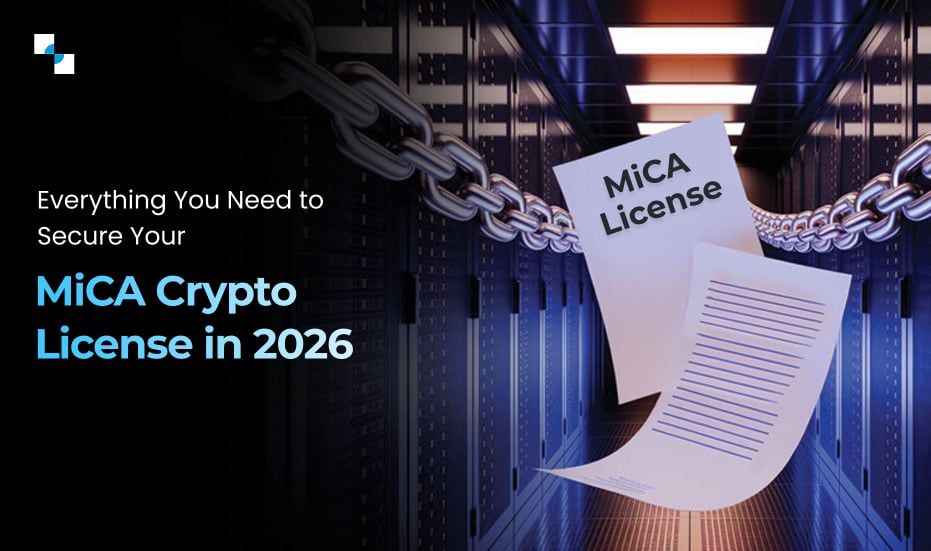Every day, numerous news reports across television broadcasts and social media platforms highlight issues such as product counterfeiting and food waste. These challenges are particularly critical in sectors that directly impact public health, such as the food and beverage industry.
“A recent analysis by BSI Consulting indicates a 79% increase in recorded food supply chain thefts, driven by a convergence of factors, including extreme climate events, inflation, and the emergence of sophisticated fraud techniques.” This rise in thefts may stem from the opaqueness in the supply chain, which creates vulnerabilities and makes it easier for bad actors to exploit the system.
Now imagine walking through a supermarket aisle, reaching for a bottle of extra virgin olive oil, and scanning a QR code. Instantly, your screen reveals a digital journey: the exact farm where the olives were grown, the date of harvest, the cold-pressing process, and the sustainable practices behind it. This isn’t just a vision, it’s the power of blockchain for supply chain transparency, and Lidl, a renowned company is making it a reality.
But Lidl is just the beginning. If a global retailer can integrate blockchain to verify its supply chain, why not your business? Let’s explore how blockchain supply chain development overcomes the challenges that existing supply chains face and how companies, like Lidl, are leveraging this technology to gain a competitive edge.
The Challenges in Supply Chain Management
Modern supply chains are complex, involving multiple intermediaries, cross-border logistics, and intricate documentation processes. Some of the biggest challenges businesses face include:
- Lack of Transparency: Consumers and stakeholders often struggle to verify the origin and journey of products.
- Fraud & Counterfeiting: The supply chain is vulnerable to counterfeit goods, mislabeling, and manipulation.
- Inefficiency & Delays: Paper-based tracking systems slow down operations, resulting in delays and increased costs.
- Sustainability & Ethical Sourcing: Companies are under increasing pressure to ensure ethical sourcing and minimize their environmental impact.
- Demand Forecasting Issues: Predicting demand accurately is challenging due to market fluctuations, changing consumer preferences, and unexpected disruptions.
- Supplier Reliability: Inconsistent supplier performance, delays, and quality issues impact production schedules and overall efficiency.
- Inventory Management: Balancing inventory levels to avoid overstocking or stockouts requires efficient tracking and forecasting systems.
- Regulatory Compliance: Adhering to evolving trade regulations, environmental policies, and safety standards can be complex and costly.
Lidl’s Response: Blockchain for Complete Traceability

Lidl uses the blockchain for its ‘First Harvest’ EVOO directly to address several supply chain challenges. Lidl provides customers with a QR code on each bottle, which allows them to track the olive oil’s journey from the groves in Greece to Lidl’s shelves. This level of transparency reassures customers about the product’s authenticity, quality, and ethical sourcing, setting a new benchmark for supply chain trust.
How Blockchain Enhances Supply Chain Operations
Blockchain offers a decentralized, tamper-proof digital ledger that ensures every transaction or movement in the supply chain is securely recorded. Here’s how it benefits businesses:
1. Transparency & Trust: The Power of Immutable Records
One of the biggest advantages of blockchain in supply chains is its ability to provide real-time visibility into product origins and movements.
Case Study: Lidl’s EVOO
Lidl’s blockchain-powered tracking system records every step of the EVOO’s journey, ranging from harvesting to bottling and distribution. Customers can simply scan a QR code to access immutable data about the product’s authenticity. Utilizing blockchain for product authentication is a wise move as it strengthens trust and reduces skepticism.
How It Can Help Your Business:
Whether you operate in food, pharmaceuticals, or fashion, blockchain supply chain development is crucial as it helps provide customers and stakeholders with verifiable proof of your products’ authenticity and ethical sourcing.
2. Eliminating Counterfeit Products & Supply Chain Fraud
Fraud and counterfeit goods cause billions of dollars in losses annually and damage brand reputation. Blockchain product authentication only allows verified products to enter the market and eliminates the risk of counterfeiting and other supply chain fraud.
Case Study: Lidl’s Approach
Each batch of ‘First Harvest’ EVOO is assigned a unique digital fingerprint on the blockchain, which prevents counterfeiting and ensures that the product consumers receive is 100% authentic.
How It Can Help Your Business:
From luxury goods to pharmaceuticals, businesses can use blockchain anti-counterfeit solutions to verify product authenticity and eliminate gray-market sales.
3. Faster, More Efficient Supply Chain Operations
Traditional supply chain management relies on manual paperwork, which results in inefficiencies and delays. Blockchain-based supply chain automates these processes. It accelerates transactions as there is no need for paperwork and even scope for human errors is reduced to a great extent.
Case Study: Streamlining Logistics with Lidl’s EVOO
Lidl’s blockchain integration automates data sharing between suppliers, distributors, and retailers, which reduces manual errors and ensures smooth operations across the supply chain.
How It Can Help Your Business
If your company deals with complex supply chains, blockchain can significantly reduce costs and streamline operations through smart contracts and automated tracking.
4. Enabling Ethical Sourcing & Sustainability
With growing concerns over ethical sourcing and sustainability, businesses must prove their commitment to responsible practices. Using blockchain for supply chain transparency is a strategic approach as this technology gives a clear picture of sourcing, labor conditions, and environmental impact.
Case Study: Lidl’s EVOO & Ethical Sourcing
Lidl’s blockchain implementation strategy is a game-changer as it helps the company prove that its olive oil is sourced responsibly, with fair labor practices and sustainable farming methods.
How It Can Help Your Business
If your brand focuses on sustainability and ethical sourcing, blockchain provides credible proof of responsible business practices, giving you a competitive advantage.
5. Improving Food Safety & Recall Management
Foodborne illnesses and product recalls can damage brand reputation and lead to massive financial losses. Blockchain enables rapid traceability of contaminated or faulty products with quick and targeted recalls.
Case Study: How Lidl’s EVOO Ensures Food Safety
In case of contamination or quality issues, Lidl’s blockchain-based system allows for instant identification and removal of affected batches while preventing widespread recalls.
How It Can Help Your Business
Whether in food, pharmaceuticals, or cosmetics, blockchain ensures real-time tracking of raw materials and end products, minimizing safety risks.
Industries That Can Benefit from Blockchain in Supply Chain
Lidl’s success story with blockchain traceability isn’t limited to the food industry. Various sectors can benefit from similar implementations:
- Pharmaceuticals: Ensuring drug authenticity and preventing counterfeit medicines.
- Fashion & Luxury Goods: Verifying the authenticity of high-end products.
- Electronics & Manufacturing: Tracking components to prevent faulty or fake parts.
- Automotive: Monitoring car parts for safety compliance and recalls.
If Lidl can successfully use blockchain to enhance supply chain traceability, there’s no reason why your business can’t leverage this game-changing technology.

How Your Business Can Implement Blockchain in Supply Chain
If you’re considering integrating blockchain into your supply chain, follow these steps:
1. Identify Your Supply Chain Pain Points
Before implementing blockchain, identify key challenges in your supply chain. Are counterfeit goods a concern? Is there a lack of transparency in sourcing? Do manual tracking processes slow down operations? Addressing these pain points ensures a targeted blockchain solution.
2. Choose the Right Blockchain Platform
Selecting the right blockchain platform is crucial. One can choose Hyperledger Fabric as it is considered ideal for private, permissioned networks. On the other hand, Ethereum and Polygon enable smart contract automation that helps streamline transactions. Choose the one that fits your supply chain goals.
3. Partner with Blockchain Experts
Collaborate with experienced blockchain development firms that specialize in supply chain solutions. These experts help design, develop, and integrate blockchain systems tailored to your needs while ensuring seamless deployment, security, and compliance with industry regulations for long-term operational efficiency.
4. Educate Your Stakeholders
Successful blockchain adoption requires stakeholder awareness. Train employees, suppliers, and logistics partners on using blockchain supply chain solutions effectively. Educating them on smart contracts, data transparency, and decentralized ledgers enables smoother adoption and maximizes the benefits of blockchain in supply chain operations.
5. Start with a Pilot Project
Instead of a full-scale rollout, begin with a pilot project focusing on one product or supply chain segment. Test in a controlled environment as it helps identify potential challenges, optimize implementation strategies, and measure blockchain’s impact before expanding across the entire supply chain.
Conclusion: The Future of Supply Chain is Blockchain-Powered
Today, businesses worldwide face growing pressure to prove authenticity, combat counterfeiting, and optimize supply chains and blockchain is the ultimate solution. Lidl’s smart move of using blockchain in its ‘First Harvest’ EVOO proves that traceability, transparency, and trust are imperative to stay competitive in the industry. If Lidl can revolutionize its supply chain with blockchain, it’s high time to say yes to blockchain supply chain development relying on a reputed firm with expertise in delivering advanced blockchain-based solutions.
Antier is a renowned blockchain supply chain development company, specializing in building advanced solutions that bring transparency, security, and efficiency into the supply chain and enhance the overall experience. With expertise in blockchain programming languages and a track record of delivering 1200+ projects in the supply chain domain, we are confident enough to deliver solutions that will help your business lead the change.
Consult our skilled team for blockchain supply chain development services!







